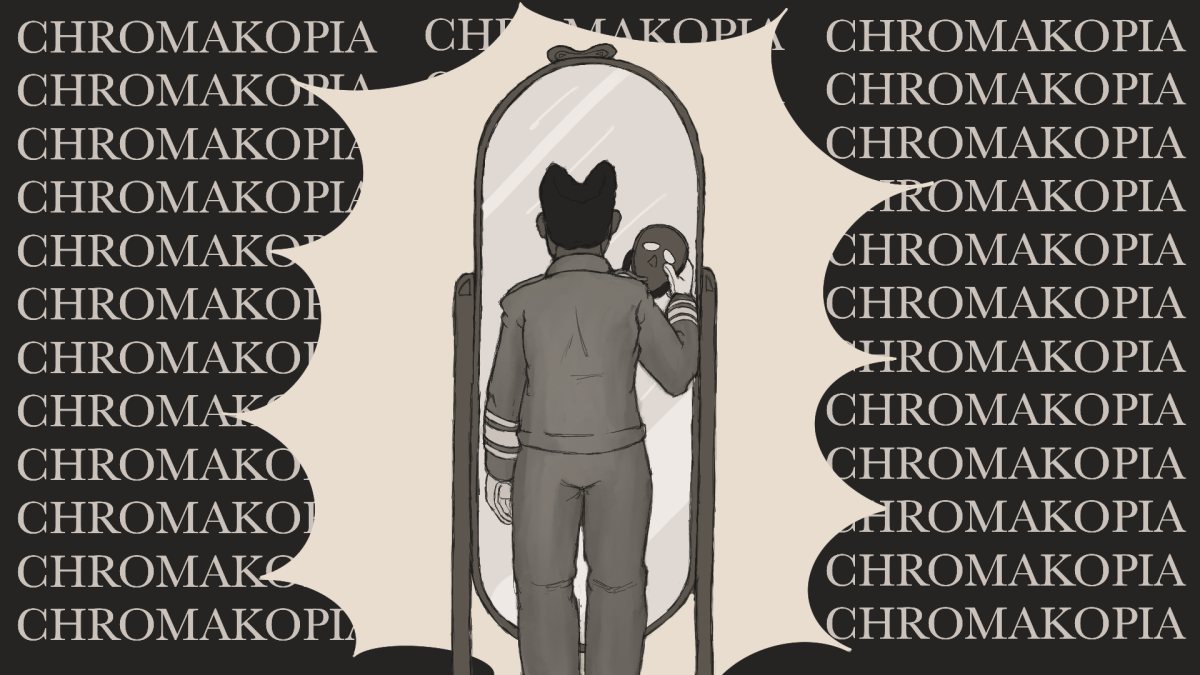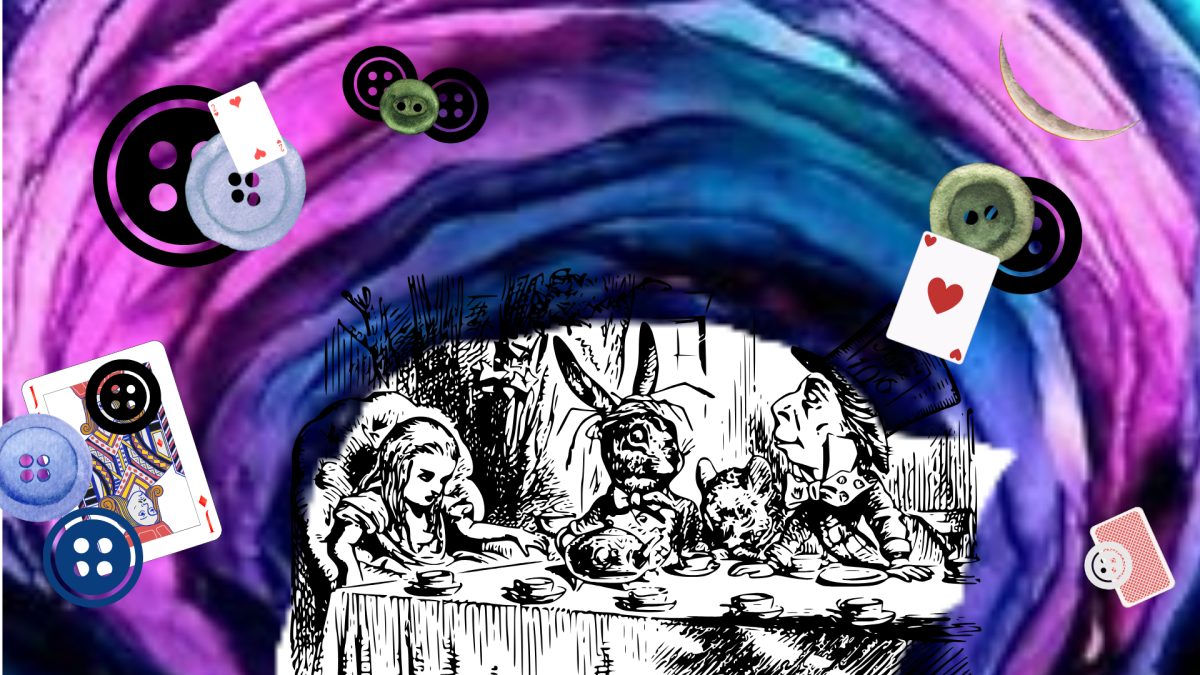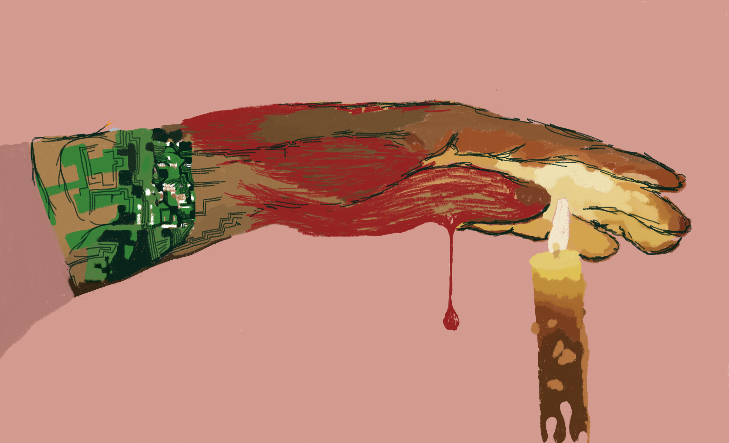In honor of “Chromakopia: The World Tour” starting on Tuesday, I spent the past week relistening to Tyler, the Creator’s eighth studio album “Chromakopia” and falling in love all over again. Branding a new yet distantly familiar musical direction, the album weaves together defiant jazz melodies, cosmic synth patterns and thunderous horn ensembles.
Embracing his roots, the album celebrates historically Black sounds and features contributions from notable Black artists like Doechii and Donald Glover, making it the perfect gateway listen to African American music this Black History Month.
“Chromakopia” has all the classic Tyler elements: boisterous bragging, ingenious samples and remarkably-poignant confessionals. Speaking on intimately personal topics like family, parenthood, aging and sexuality, Tyler paints a picture of the fickle, hesitant and always-conflicted human mind.
Lyrics reflect his internal dialogue as he questions monogamy, starting a family and his absent father, switching from perspective to perspective the same way he switches through luxury cars, I assume. Ultimately, “Chromakopia” is an unmistakable tribute to the journey of self-acceptance, from confronting the man in the mirror to accepting the light within hi
Opening track, “St. Chroma,” is a battle cry and march all in one. It begins with a beat consisting of a strictly-paced military cadence and breathwork before breaking into a reverberating synth pattern that is reminiscent of rockets breaking through atmospheres. Spoken word snippets from his mother are scattered across the album and in this song particularly, she instructs Tyler to not dim his light for anyone. Tyler recalls his unwavering self-confidence even before achieving stardom and coupled with Daniel Caesar’s hypnotic chorus, the song lights a fire even within the most casual listeners: “I don’t (I don’t), like the (like the), way that this is lookin’ (no) / Mirror got me (got me), thinkin’ about my bookend (I’m done) / I just need this time to myself to figure me out-out / Do I keep the light on or do I gracefully bow out?”
He sets his pride aside though, questioning his mirror reflection and admitting that he needs to figure himself out in quoted lyrics above. This moment of confrontation begins his journey of self-acceptance.
Track four, “Darling, I” is another self-expression anthem and this time, Tyler describes his polyamorous identity. He uses a metaphor of luxury cars that compares his BMW, Ferrari and Rolls Royce to explain how he gets “different things from different people,” joking that forever is so long. In an exceptionally profound moment of self-reflection, he admits that as time changes, people — though compatible in the present — can grow apart, but their connection will always be memorable and impactful. This song is a courageous attempt at self-acceptance, especially during a time when polyamory still ruffles feathers in public opinion: “Everybody’s different, you know? And it’s not just sex / I get different things from different people, and I want you to explore too (uh) / Have those moments and experiences (uh).”
Track six, “I Killed You,” a mesmerizing composition of tribal drum rhythms, loud trumpet horns and Spanish guitar, pays homage to the complexities of Black hair. Historically, natural Black hair has created social and employment disadvantages for African Americans and centuries of shame have caused many Black people to turn to chemicals and relaxers: “I gotta work, I gotta eat / If they see you on top of me, I gotta leave / … I killed you / Your natural state is threatening / To the point that I point at myself and self-esteem /… I killed you.”
These products are physically damaging and the emotional gravity of such harmful beauty standards erodes the rich history that Black hair and hairstyles have. Tyler raps about how Black braids depicted slave routes to freedom and how it was “essential” and a “symbol.” The repetition “I killed you” describes how he killed his hair, but as the quoted lyrics above suggest, Tyler simultaneously killed his self-esteem and identity in the process. He accepts his heritage at the song’s conclusion, testifying “you are my crown” and “I would never kill you.”
Self-acceptance takes on all kinds of daunting shapes and sizes in “Chromakopia,” from Tyler’s realization of gaining weight and seeking rest in “Tomorrow” all the way to a story of a closeted preacher in “Take Your Mask Off.”
In “Like Him,” Tyler accepts his reality without ever knowing his father, affirming “I’m everything that I strive to be” despite previously feeling lost without a father figure. The album is full of countless iterations of self-growth and perseverance; sonically, it’s vivacious and lyrically, it’s masterfully sentimental.
Lessons in the album transcend Tyler’s own experiences and apply to listeners too: the folksy, jazzy ballad “Judge Judy” urges living “your truest self with no regrets,” and “Tomorrow” encourages us to stop “worry[ing] bout tomorrow.”
I have lived half the life that Tyler, the Creator has and yet, I see myself in every note and every syllable. The word “transformative” doesn’t begin to capture how much this album has changed me, and it is my hope that it might have a place in your heart too.














